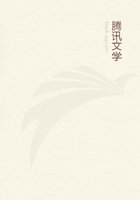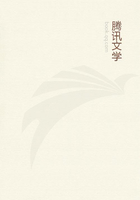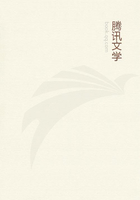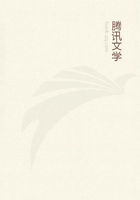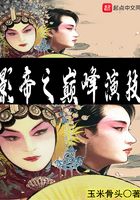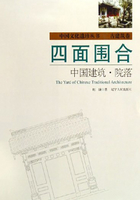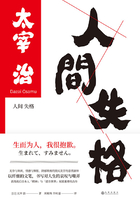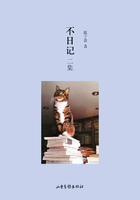Weaker reasons than these would have satisfied the Whigs who formed the majority of the Privy Council. The King therefore, on the fifth day after he had been proclaimed, went with royal state to the House of Lords, and took his seat on the throne. The Commons were called in; and he, with many gracious expressions, reminded his hearers of the perilous situation of the country, and exhorted them to take such steps as might prevent unnecessary delay in the transaction of public business. His speech was received by the gentlemen who crowded the bar with the deep hum by which our ancestors were wont to indicate approbation, and which was often heard in places more sacred than the Chamber of the Peers.32 As soon as he had retired, a Bill declaring the Convention a Parliament was laid on the table of the Lords, and rapidly passed by them. In the Commons the debates were warm. The House resolved itself into a Committee; and so great was the excitement that, when the authority of the Speaker was withdrawn, it was hardly possible to preserve order. Sharp personalities were exchanged. The phrase, "hear him," a phrase which had originally been used only to silence irregular noises, and to remind members of the duty of attending to the discussion, had, during some years, been gradually becoming what it now is; that is to say, a cry indicative, according to the tone, of admiration, acquiescence, indignation, or derision. On this occasion, the Whigs vociferated "Hear, hear," so tumultuously that the Tories complained of unfair usage. Seymour, the leader of the minority, declared that there could be no freedom of debate while such clamour was tolerated. Some old Whig members were provoked into reminding him that the same clamour had occasionally been heard when he presided, and had not then been repressed. Yet, eager and angry as both sides were, the speeches on both sides indicated that profound reverence for law and prescription which has long been characteristic of Englishmen, and which, though it runs sometimes into pedantry and sometimes into superstition, is not without its advantages. Even at that momentous crisis, when the nation was still in the ferment of a revolution, our public men talked long and seriously about all the circumstances of the deposition of Edward the Second and of the deposition of Richard the Second, and anxiously inquired whether the assembly which, with Archbishop Lanfranc at its head, set aside Robert of Normandy, and put William Rufus on the throne, did or did not afterwards continue to act as the legislature of the realm. Much was said about the history of writs; much about the etymology of the word Parliament. It is remarkable, that the orator who took the most statesmanlike view of the subject was old Maynard. In the civil conflicts of fifty eventful years he had learned that questions affecting the highest interests of the commonwealth were not to be decided by verbal cavils and by scraps of Law French and Law Latin; and, being by universal acknowledgment the most subtle and the most learned of English jurists, he could express what he felt without the risk of being accused of ignorance and presumption. He scornfully thrust aside as frivolous and out of place all that blackletter learning, which some men, far less versed in such matters than himself, had introduced into the discussion. "We are," he said, "at this moment out of the beaten path. If therefore we are determined to move only in that path, we cannot move at all. A man in a revolution resolving to do nothing which is not strictly according to established form resembles a man who has lost himself in the wilderness, and who stands crying 'Where is the king's highway? I will walk nowhere but on the king's highway.' In a wilderness a man should take the track which will carry him home. In a revolution we must have recourse to the highest law, the safety of the state." Another veteran Roundhead, Colonel Birch, took the same side, and argued with great force and keenness from the precedent of 1660. Seymour and his supporters were beaten in the Committee, and did not venture to divide the House on the Report. The Bill passed rapidly, and received the royal assent on the tenth day after the accession of William and Mary.33The law which turned the Convention into a Parliament contained a clause providing that no person should, after the first of March, sit or vote in either House without taking the oaths to the new King and Queen. This enactment produced great agitation throughout society. The adherents of the exiled dynasty hoped and confidently predicted that the recusants would be numerous. The minority in both Houses, it was said, would be true to the cause of hereditary monarchy. There might be here and there a traitor;but the great body of those who had voted for a Regency would be firm. Only two Bishops at most would recognise the usurpers.
Seymour would retire from public life rather than abjure his principles. Grafton had determined to fly to France and to throw himself at the feet of his uncle. With such rumours as these all the coffeehouses of London were filled during the latter part of February. So intense was the public anxiety that, if any man of rank was missed, two days running, at his usual haunts, it was immediately whispered that he had stolen away to Saint Germains.34The second of March arrived; and the event quieted the fears of one party, and confounded the hopes of the other. The Primate indeed and several of his suffragans stood obstinately aloof: but three Bishops and seventy-three temporal peers took the oaths. At the next meeting of the Upper House several more prelates came in. Within a week about a hundred Lords had qualified themselves to sit. Others, who were prevented by illness from appearing, sent excuses and professions of attachment to their Majesties.

